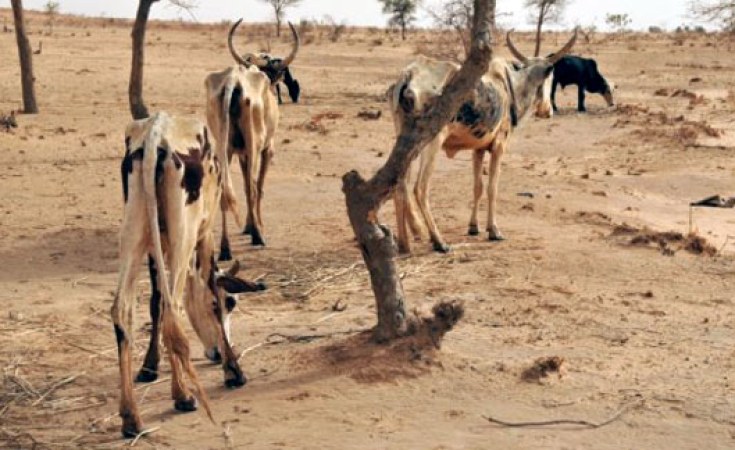Twelve “powerful’ families have been put in the spotlight for allegedly owning a ranch in Usangu that is blocking the Ihefu Valley, consequently limiting water supply to the Great Ruaha River.
This was revealed by Tanzania Editors Forum (TEF) chairman, Deodatus Balile, at a conference to address the rising environmental degradation in the country held in Iringa on December 19.
During his speech, Balile said in front of the Vice President, Philip Mpango, that he knows there’s a cartel of 12 powerful families, including government officials, ministers, and judges, who own a ranch that is blocking the water ecosystem.

“People who work close to you might be afraid to speak out, but I’m not. I can give you the names of the 12 families that own the ranch that’s destroying the environment,” Balile told the Vice President.
The Vice President, Dr Philip Mpango, acknowledged that there are leaders in the government who own businesses that destroy the environment.
He said some leaders, for personal gains, engage in activities that are detrimental to the natural ecosystem and destroy water sources such as rivers.
The VP was speaking at a conference to address the rising environmental degradation in Tanzania and the increasing climate change threat.
Vice President, Dr Philip Mpango, thanked the Tanzania Editors Forum (TEF) chairman, Deodatus Balile, for being bold enough to speak up about an underground cartel of 12 families that run a business that’s destroying the environment.
The VP also questioned why it took a journalist to reveal the illegal business. He wondered why the government has failed to reveal their identities, yet it’s the government that hands out business licenses.
“How can one own several business properties and not be identified?” the vice president asked.
He ordered various government ministries and parastatals to get to the bottom of the challenges and issue a report.
Tanzania’s Great Ruaha River has been deprived of water, causing devastation in supply of electricity and wildlife wellbeing.
The Great Ruaha River has not seen a drop of water in 130 days and counting.
Increased human activities in Tanzania’s major natural resource areas, such as valleys, have led to the blockage of water to the Great Ruaha River.
The Great Ruaha River is located in south-central Tanzania. It flows through the Usangu wetlands and the Ruaha National Park east into the Rufiji River. It traverses and marks the borders between the Iringa, Dodoma, and Morogoro regions.
It is one of Tanzania’s most important water sources for generating electricity and also sustaining wildlife.
Share this news
This Year’s Most Read News Stories

ZSSF money not for projects, says Ali Karume
Unguja. Veteran politician and diplomat Ali Karume has called on authorities of the Zanzibar Revolutionary Government (SMZ) to refrain from using the Zanzibar Social Security Fund money for establishing commercial projects.Continue Reading

Zanzibar airport monopoly puts 600 jobs at risk
On September 14, 2022, the director general of ZAA issued a directive that gave Dnata Zanzibar Aviation Services Limited an exclusive access to the newly constructed Terminal III, barring other operators.Continue Reading

How diplomatic intervention kept Air France, KLM in Zanzibar
It has, however, emerged, that the Netherland and France sought a diplomatic solution to a standoff at the Abeid Aman Karume International Airport, warning that it could disrupt Air France and KLM flights into Zanzibar, and later Dar es Salaam.Continue Reading












